In collaboration with LokaLocal, we’re bringing you some little known stories from all around Malaysia ranging from urban legends to culture, food, and plenty of other interesting little nuggets of Malaysian culture that you might not have heard before.
This week’s story in this ‘Undiscovered Malaysia’ series tells the story of Bekok, a peaceful village in Johor that welcomes more visitors with each passing year. Teo Chia Jhin, who introduces himself as CJ, tells the LokaLocal team how new traditions created by the community and national initiatives have stirred growth in Bekok.
A Close-Knit Community
Kampung Baru Bekok in Johor is no stranger to tourism. There have always been one day tours to the ecotourism paradise, which encompasses the Endau Rompin-Selai National Park and Sungai Banting Waterfall. Back then, none of these were run by locals, and there were no options to stay overnight. This was something CJ noticed while growing up in Bekok.
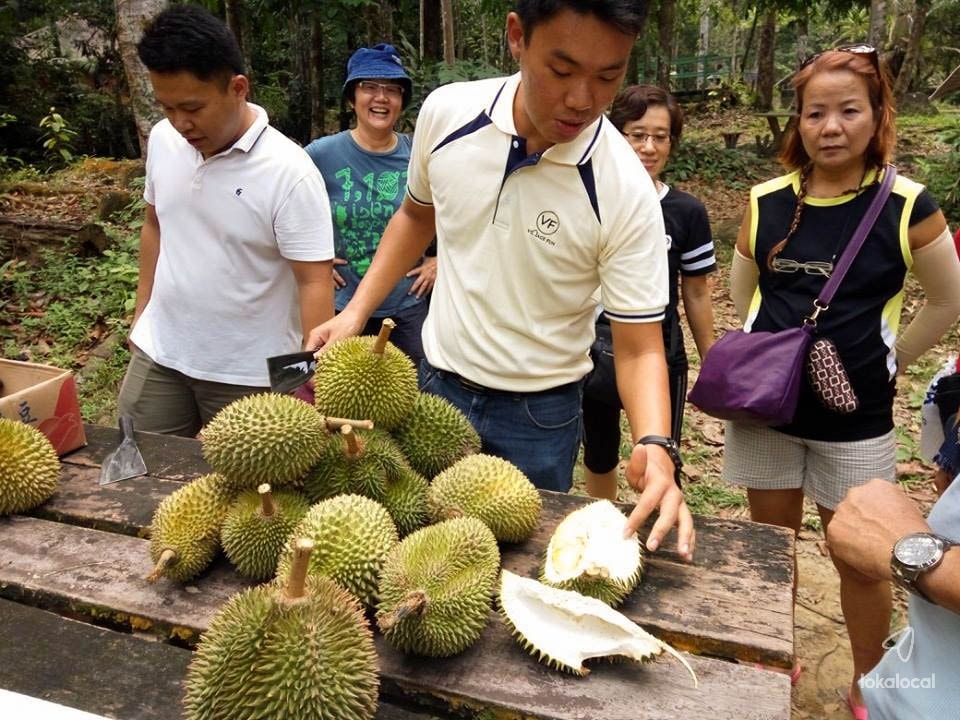
As it happened, changes were unfolding in Bekok. In 2011, the village’s first homestay opened next to the railway station. Three years later, the Bekok Transformation Programme led to the emergence of vibrant murals across the walls of its wooden buildings, as well as a number of local homestays. Since then, the village would hold the annual Bekok Festival and Jom Balik Bekok carnival to attract more visitors.
After graduating with a hospitality degree in 2015, the 24-year-old approached an investor with a proposal – to start a homestay business which CJ would then manage.
For him, choosing his kampung over other opportunities in the city came naturally. Apart from wanting to care for his parents, he felt that the city did not inspire him the way Bekok does.
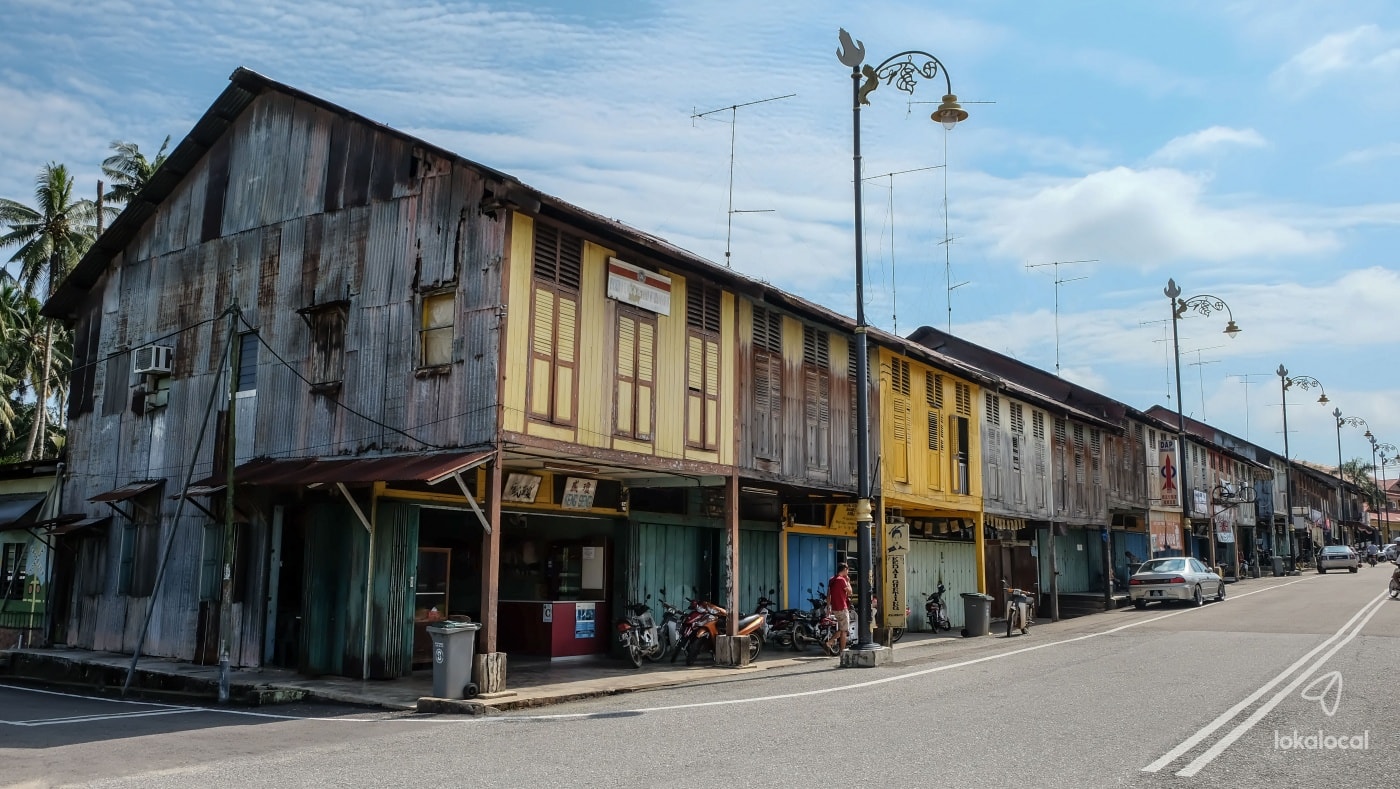
“Coming home, there is that sense of security. The crime rate here is very low,” CJ added, citing the close-knit community as a reason for his adoration for the peaceful village.
This appears to be a trait the villagers are proud of. When the Bekok Transformation Programme was announced, the locals were the first to volunteer to paint its signature street art. Many of them also made an appearance in a music video entitled 恋恋彼咯 I Love Bekok. It features an uplifting song about the love for their hometown, which they now gladly call their “village anthem”.
He and his friend, Dino, now manage three of the eight existing local homestays in Bekok. They also run local tours with help from part timers, students and passionate locals.
Putting Rural Traditions in the Spotlight
A key element they strive to include in their tours is an immersive local experience. CJ and Dino both run different tours that tap on numerous local activities. Apart from jungle trekking and having a picnic at a waterfall, guests can also experience rubber tapping and visit the Bekok’s first farm, which has since been turned into a local attraction.
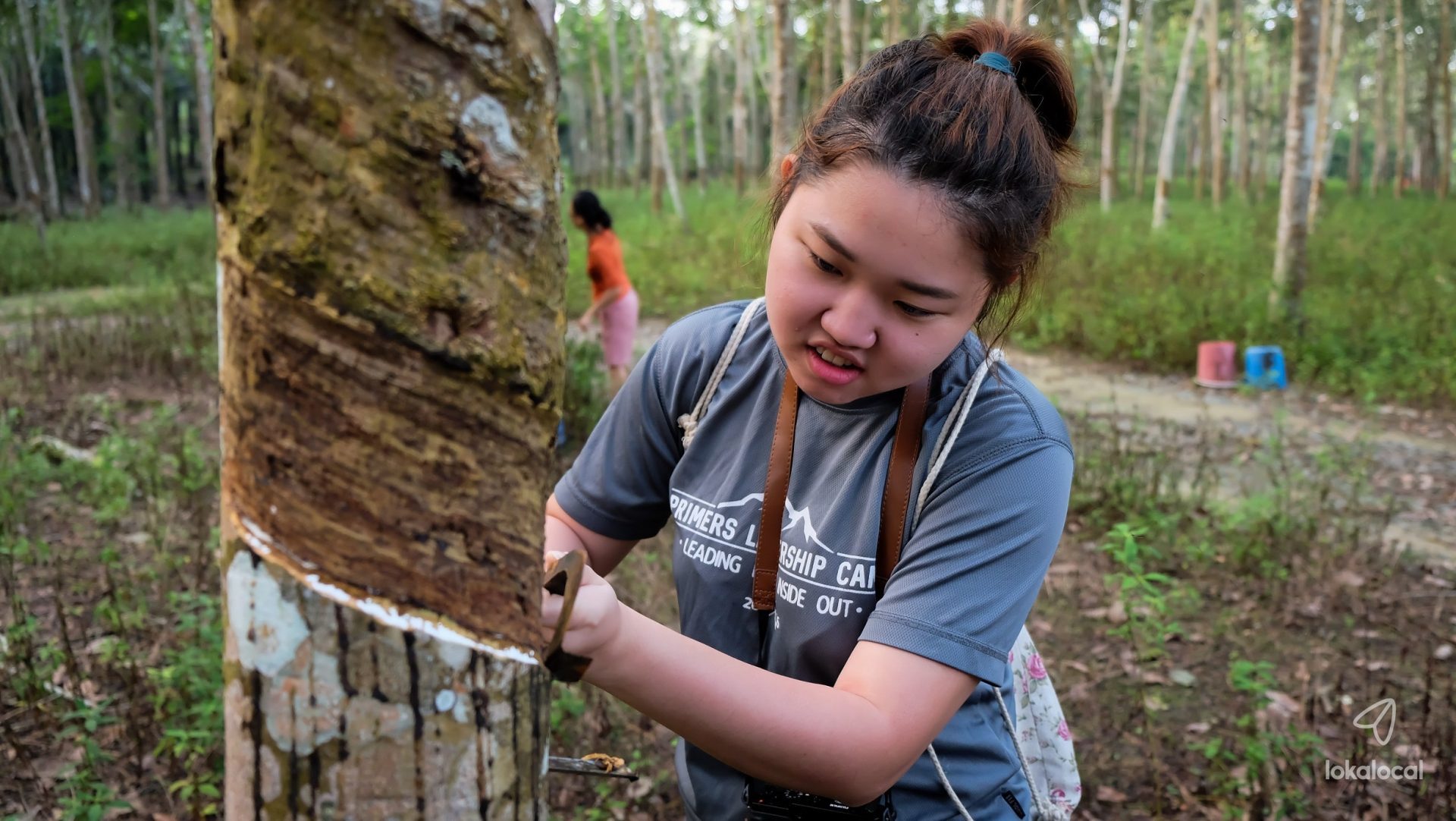
They can cycle around the village on bicycles and look for the street art. There is also the Hakka Cultural Centre, with its collection of vintage memorabilia, run by another local homestay owner. At night, they can look up from anywhere in the village and see a sky full of sparkling stars.
There are many activities that are normal to us but not to city folk. People don’t usually have the chance to experience these. Some city kids haven’t even seen chickens or ducks before! – CJ
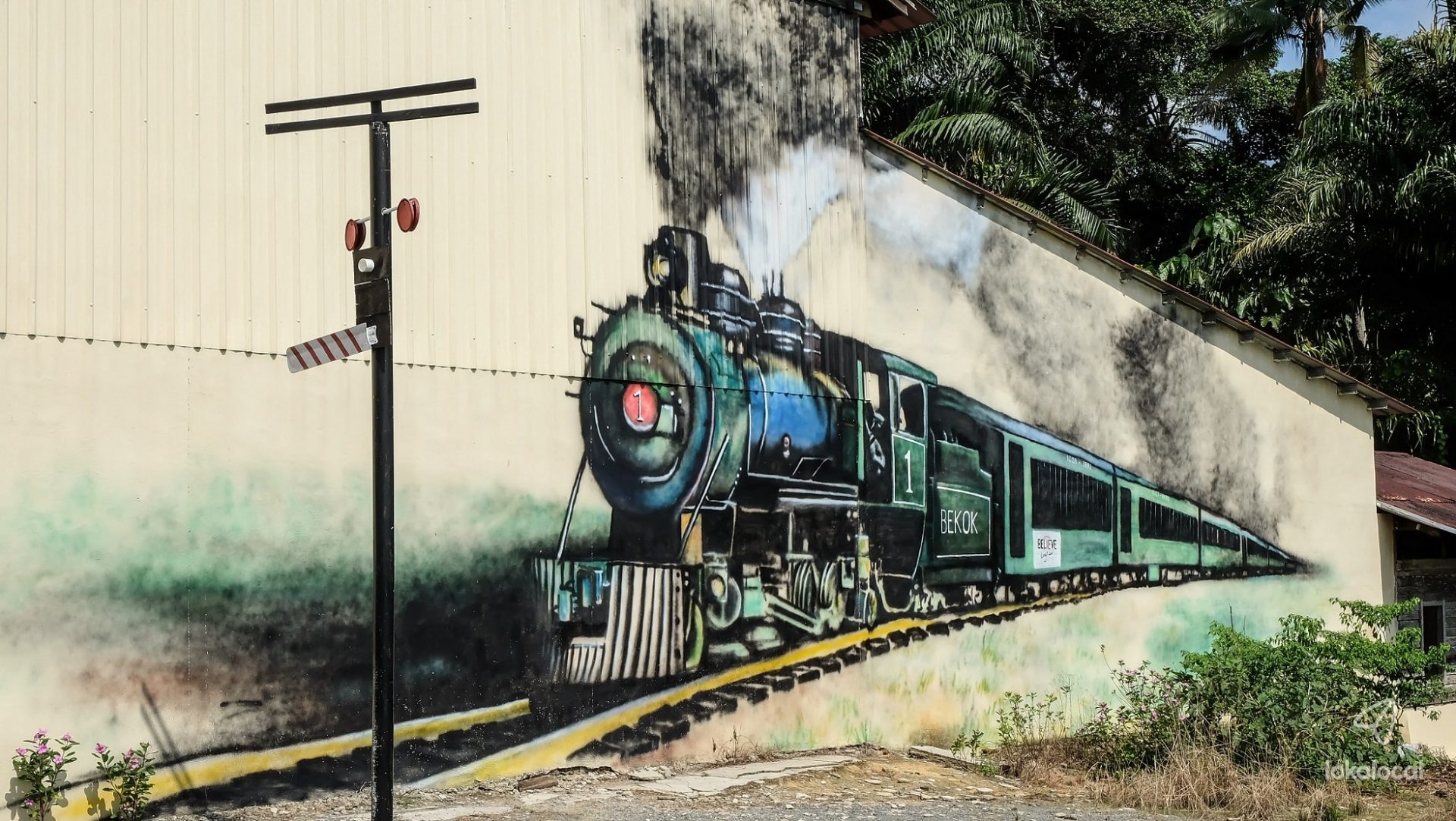
Surprisingly, Bekok sees a large number of foreign visitors each year. According to CJ, 80% of their customers are from Singapore, while the rest are Malaysians and even tourists from Australia, Japan, and Hong Kong.
Read next: 16 Things to Do in Bekok, Johor’s Serene Village
Inspiring A New “Durian Tradition”
For some, Bekok conjures another gastronomic image: durians. Many of CJ and Dino’s guests come here to feast on this exotic King of Fruits, especially during the durian season around end November to December. Some species found here are the notable D24 and Musang King.
Now, if you are a fan of durian, you might want to hold onto your seats for this little teaser he had to offer. Imagine going into a durian orchard at night, and waiting for them to fall! All while wearing safety helmets, of course. Durians naturally fall off the tree when they are ripe, and often when the weather is cooler, hence why they are said to drop at night.
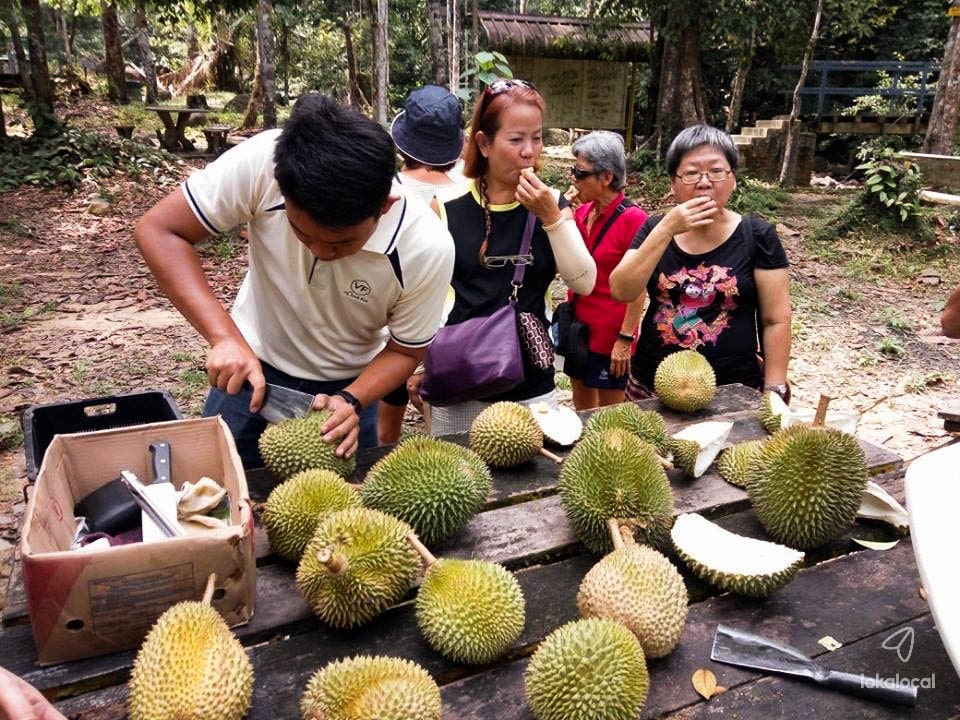
With this, the Bekok boys hope to inspire a new tradition in Bekok. Although the finer details like logistics and safety are being ironed out, CJ is excited about sharing this new experience with city folk who have not gone into an orchard before, sometime in the future.
In the meantime, anyone can still visit Bekok to experience life in a kampung, and have fresh durians when they are in season. For more information, you can look for a 2D1N durian experience in Bekok with CJ, or other local experiences in Bekok.
"ExpatGo welcomes and encourages comments, input, and divergent opinions. However, we kindly request that you use suitable language in your comments, and refrain from any sort of personal attack, hate speech, or disparaging rhetoric. Comments not in line with this are subject to removal from the site. "




















